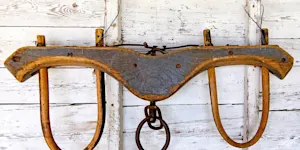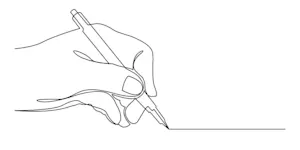What Makes This Word Tick
"Purloin" is one of those words that rolls off the tongue with a mischievous flair. While it simply means to steal, it adds a layer of elegance and drama, as if the act involves a cloak and dagger more than sticky fingers. It carries a sense of intrigue, making you wonder what adventure might be hidden behind the act of thievery.
If Purloin Were a Person…
Purloin would definitely wear a trench coat and a fedora, frequenting smoky jazz clubs while occasionally lifting a wallet—just for the thrill of it. They'd be charming and wily, with a roguish wink that lets you know they probably shouldn't be trusted. Purloin's presence would be felt in the quiet disappearance of small, precious items.
How This Word Has Changed Over Time
Originating in the Middle English period, "purloin" has not dramatically shifted in definition but has softened in its connotation over the years. What once might have invoked the image of a dastardly rogue has become more aligned with playful rebellion. Nowadays, it's often used humorously or to describe petty theft rather than grand larceny.
Old Sayings and Proverbs That Use Purloin
In days gone by, someone might have warned, "He who purloins never prospers!" It’s not exactly a time-worn adage, but it echoes similar moral sentiments found in traditional sayings. "Don't purloin from Peter to pay Paul" might have made a smidgen of sense as a playful twist on robbing Peter to pay Paul.
Surprising Facts About Purloin
A fun tidbit about "purloin" is that it shares a root with "long" and "linger," both connected to the idea of extending or drawing out. In this light, to purloin might amusingly suggest whisking something away for a more drawn-out enjoyment. Also, it's a word often favored in detective novels for its delightful formality and precision.
Out and About With This Word
Should you hear "purloin" in a conversation today, it might be at a book club discussing a classic mystery, where a purse or a precious jewel has gone missing. In culinary circles, a cheeky chef might purloin a lobster for a particularly daring dish. It's a word that pops up in places of intrigue, creativity, and sometimes humor.
Pop Culture Moments Where Purloin Was Used
The word "purloin" might not headline in blockbuster movies, but it finds its niche in detective shows and novels. You can almost hear a Victorian detective uttering, "The purloined letter holds the key to the mystery!" Such moments capture that delicious intersection of seriousness and whimsy.
The Word in Literature
"Purloin" carries a literary elegance, often appearing in mystery and crime fiction within novels by Agatha Christie or Sir Arthur Conan Doyle. It's one of those words that lends an author's prose an air of sophistication, underscoring the cunning of a crafty character while keeping readers on their toes.
Moments in History with Purloin
Consider espionage: the ultimate purloining of secrets! While "purloin" itself may not pepper historical documents, it's the very essence of Cold War spies secretly obtaining sensitive information. Or think of famous heists, like the Great Train Robbery—it’s in these tales that the spirit of purloining thrives.
This Word Around the World
This concept of purloining materializes interestingly in other languages: in French, it's "voler," while in German, it’s "stehlen." Across cultures, the act of stealthy theft can vary widely in both implication and context—sometimes even humorously depicted in local idioms.
Where Does It Come From?
"Purloin" originates from the Old French "purloigner," meaning to remove or put at a distance. It's a vivid word with roots buried deep in the historical ground of language evolution, brought into English around the 14th century, carrying connotations of not just stealing, but a sneaky and artful removal.
How People Misuse This Word
Occasionally, "purloin" is mistaken for any sort of borrowing or taking on loan, which isn't quite right—it requires a certain underhandedness or stealth. It's also sometimes used too casually, modulating the wicked thrill it implies in favor of a bland, lifeless borrowing.
Words It’s Often Confused With
Pilfer: Focuses more on stealing items of little value; less suave than purloin.
Steal: The general act, lacking purloin’s elegance and specificity.
Filch: Similar in cheeky sneakiness, but often implies an even more minor theft.
Additional Synonyms and Antonyms
Synonyms include "appropriate," "swipe," and "filch," each adding its own shade to the act of stealing. Antonyms would be "return," "give," and "grant," implying a voluntary transfer or restitution rather than sneaky acquisition.
Want to Try It Out in a Sentence?
"Despite their best efforts at subtlety, the thief couldn't escape the gathering crowd’s notice as they tried to purloin the Mayor's prized fountain pen."
















